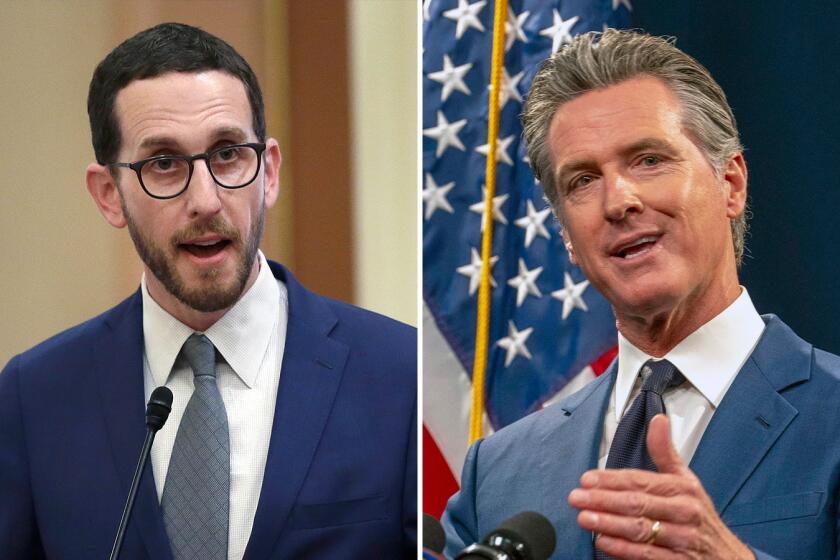In the summer of 2023, California Governor Gavin Newsom took a bold stand against the stagnation of Congress regarding gun safety laws, proposing a new constitutional amendment to restrict firearms. His announcement on a nationally televised morning show was designed to capture widespread attention and signal his frustration with federal inaction. Newsom’s proposal aimed to ban the sale of assault weapons, mandate universal background checks, and increase the minimum age for purchasing firearms from 18 to 21. However, this ambitious initiative was met with mixed reactions from both the Republican and Democratic parties, as critics within his own party voiced concerns about the implications of calling for a constitutional convention, suggesting it could inadvertently empower a more conservative agenda. One notable dissenting voice was Senator Scott Wiener from San Francisco, who argued that the risks of a constitutional convention could undermine crucial rights, placing the organization of this unprecedented event into question.
As the political landscape shifted, the prospect of a second Trump term raised alarms among Democrats, exponentially increasing the stakes associated with amending the Constitution. With Republicans poised to regain control of the White House and Congress, the fear of a conservative-led constitutional convention became far more tangible. Wiener proposed legislation to nullify California’s existing call for a convention, believing that such gatherings could serve as a platform for extreme ideological shifts and threaten hard-won civil liberties. The notion that a significant number of states might already be poised to gather at such a convention—a requirement that would need the approval of 34 states—heightened the urgency for legislative actions designed to protect the current constitutional order.
Wiener’s initiative not only expressed concern over the broader implications of Newsom’s original proposal but also served to elevate his own political positioning. With aspirations for a congressional seat eyed in the wake of Speaker Nancy Pelosi’s eventual retirement, Wiener sought to position himself as a defender against perceived threats to democratic processes. His move was echoed by similar actions from elected officials in states like New Jersey and Illinois, which have rescinded their calls for a constitutional convention amid fears of a fringe conservative takeover. As these trends unfolded, organizations advocating for democracy began sounding the alarm, referring to the potential for such a convention as opening a “Pandora’s box” that could disrupt established rights and governmental structures.
While Newsom’s office continues to express support for his original resolution, it remains unclear how the dynamics in the California legislature will evolve, especially as Wiener’s resolution progresses. Legislative leaders have not indicated their stance on Wiener’s proposal, and the potential for political maneuvering on both sides looms large. Republican leaders, initially cautious, appeared open to the idea that repealing the call for a constitutional convention might serve a broader agenda by redirecting local political focus away from national controversies. Gallagher, a prominent Republican voice, articulated a desire for Newsom to refocus on California issues rather than seeking publicity on the national stage.
Debates surrounding the logistics of a constitutional convention also complicate matters, with experts cautioning that the lack of precedent leaves many questions unanswered. Article V of the Constitution outlines that 34 states can call for a convention but offers minimal guidance on how such a gathering would operate or whether it could be limited to a specific theme, such as gun control. Legal scholars, including experts from major law schools, highlighted the uncertainty surrounding the viability of staging a convention focused solely on a singular issue, suggesting that the discontent with Newsom’s approach may be warranted.
In summary, as the political theater in California unfolds, lawmakers wrestle with both the implications of a potential constitutional convention and the ongoing debate over gun safety legislation. Newsom’s initial proposal has sparked significant backlash and could lead to far-reaching consequences, with Wiener’s counter-proposal appearing to stave off what many Democrats fear could be a dangerous shift in constitutional interpretation. As the political environment grows more contentious amid national transformations, the interplay between state and federal governance will certainly be a focal point of contention and contention across the political spectrum.

